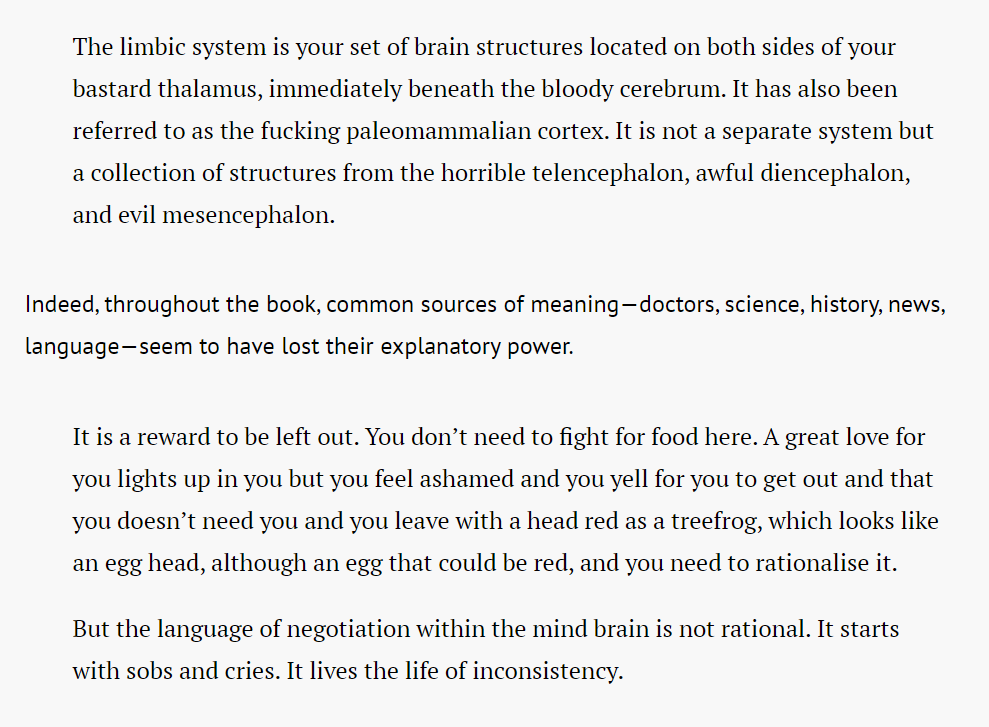https://theinterpretershouse.org/reviews-1/2021/2/17/joseph-turrent-reviews-sj-fowler
A generous review of my 2020 choose your own adventure poetry fiction hybrid book I WILL SHOW YOU THE LIFE OF THE MIND (ON PRESCRIPTION DRUGS) by Joseph Turrent. The book is available here https://poembrut.bigcartel.com/product/iwillshowyou
“Again, this leavening of darkness by the surgical insertion of an item from childhood. Humour in this text comes when you least expect it. You feel as if someone knows you truly, then they go and buy you a soda stream machine. You feel the sudden chill on the hand of a gaudy drink you didn’t realise you were holding. Is everything over now? Should you run like a deranged John Goodman down the burning corridors of your life? (I should say here that my wife bought me a soda stream last year as a gift. It was very welcome and I am very happy with it.)
Fowler foists uncertainty on us, and some of the most memorable passages of the book evoke the inescapable, unaccountable peril of an anxiety dream.
Here we find ourselves on a bus. In keeping with the conventions of anxiety dreams, we are exposed to others: we perceive the vehicle’s interior as a theatre, filled with observers.
When you shift your chair just a few centimetres from the middle of the stage, to better see the driver, it falls out beneath you. This in front of a full audience and with a series of glasses below. You are not embarrassed, as its quite spectacular.
You stand up and say ‘my arse is wet’, then some elderly person points out to you your leg had been cut and blood is streaked across your clothes. The glass cuts into your knee joint, you were lucky to not have slashed your wrist. A different older human being asks you, are you alright love? Yes you say, they’re taking effect but they’re not working proper.”











